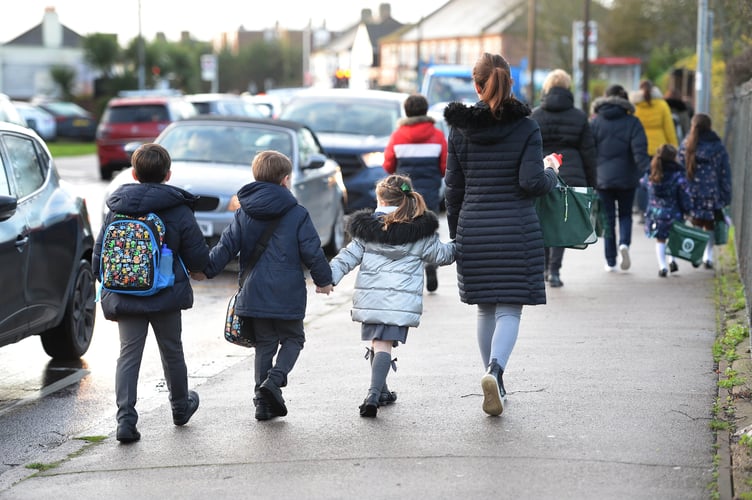New schools in Gloucestershire are being built in areas with unsafe levels of air pollution, new analysis shows.
Researchers found nearly nine in 10 planned new school sites across England have air pollution levels exceeding the World Health Organization (WHO) targets.
Experts at Evelina London children's hospital and King's College London, who conducted the study, called for environmental issues to be considered as part of all government policy decisions.
The figures show 126 out of 147 schools across the country due to be built between 2017 and 2025 exceeded the recommended levels for three different air pollutants, PM2.5, PM10, and NO2, while every site exceeded at least one.
This included two new schools in Gloucestershire – Longford Park Primary Academy and Sladewood Academy . PM2.5 particles, which can cause asthma and respiratory inflammation, were nearly double the target at one and more than double at the other.
Children were also exposed to high levels of PM10 and NO2, which can reduce lung development.
Jenny Bates, air pollution campaigner at Friends of the Earth, said exposure to polluted air can be particularly harmful to children as their organs are still developing, and "living with dirty air can even result in reduced lung function".
She added: "Schools and health facilities shouldn't be located in areas that exceed World Health Organization guidelines.
"The new Labour government must update UK air quality targets in line with WHO standards.
"On top of this, it should also do more to clean up road transport and encourage more people to leave their cars at home with better public transport, and safer streets for walking and cycling."
The analysis found pollutant levels were especially high at sites in London, Birmingham, Manchester, and Leeds. In contrast, sites in other major cities such as Liverpool, Bristol, and Newcastle had relatively lower levels of pollution.
The lowest pollutant levels were observed at sites in Devon and Cornwall.
Pepe Di’Iasio, general secretary of the Association of School and College Leaders, called the findings "concerning", and said air quality should be considered when locating new schools.
He added: "Many existing school buildings are also in a bad condition, and suffer from poor ventilation, as a result of a lack of investment in the school estate over many years."
He called on the new government to ensure all necessary repair work is done to make schools "safe, sustainable and comfortable".
Dr Meredith J P Robertson, consultant in paediatric respiratory medicine at Evelina London Children's Hospital, said people from deprived backgrounds and non-white populations are disproportionately affected by air pollution.
She said: "Local and central government have a responsibility to provide more funding for public health and collaboration across different public sector organisations to create effective holistic interventions.
"Environmental issues need to be given due consideration by all government departments and organisations and be included in all policy decision making processes."
A Government spokesperson said: "We are determined to improve air quality and protect children from the harms of pollution.
"That is why we will deliver a comprehensive and ambitious Clean Air Strategy including a series of interventions to clean up our air so that everyone has safe air to breathe."




